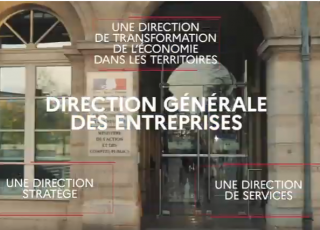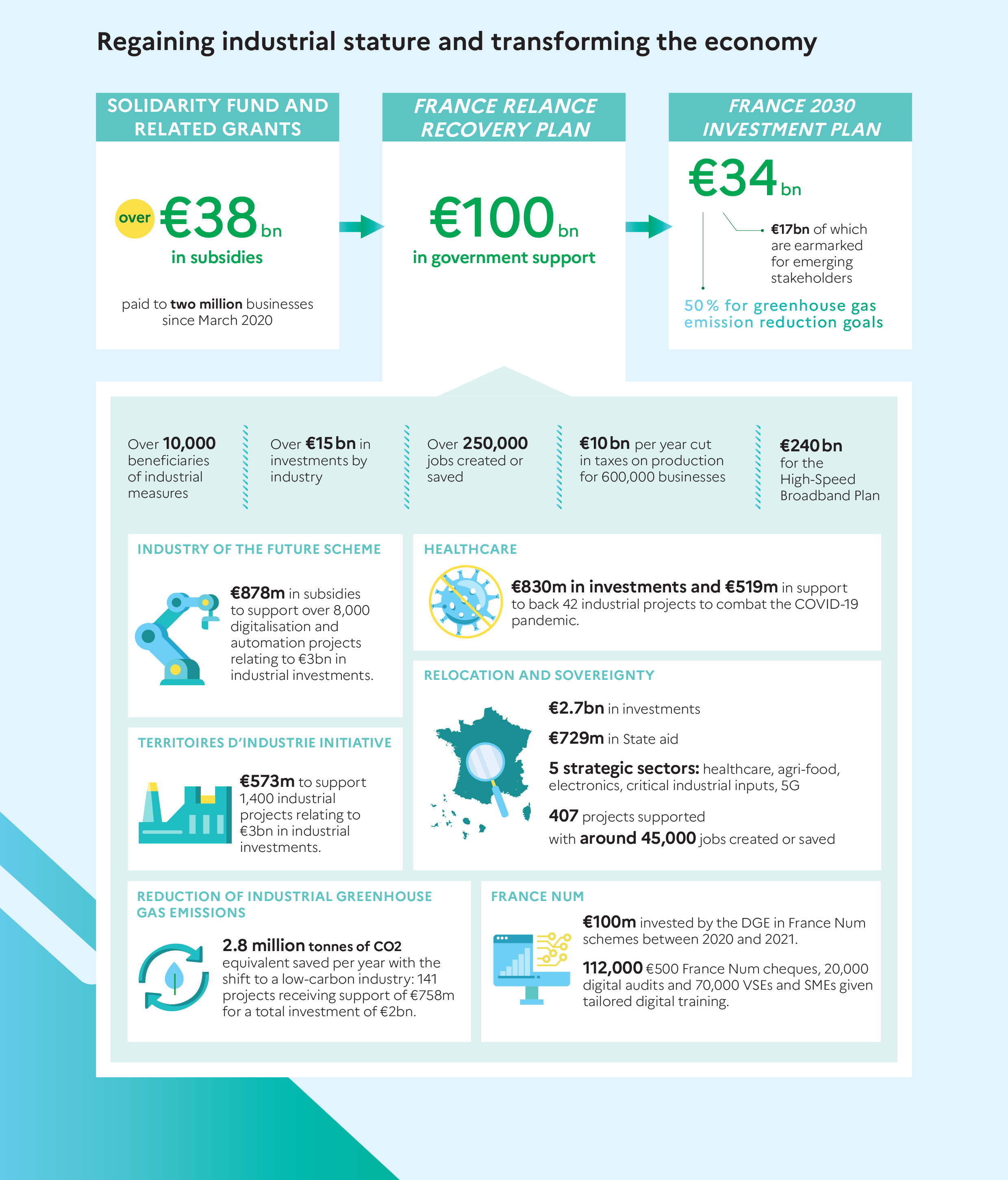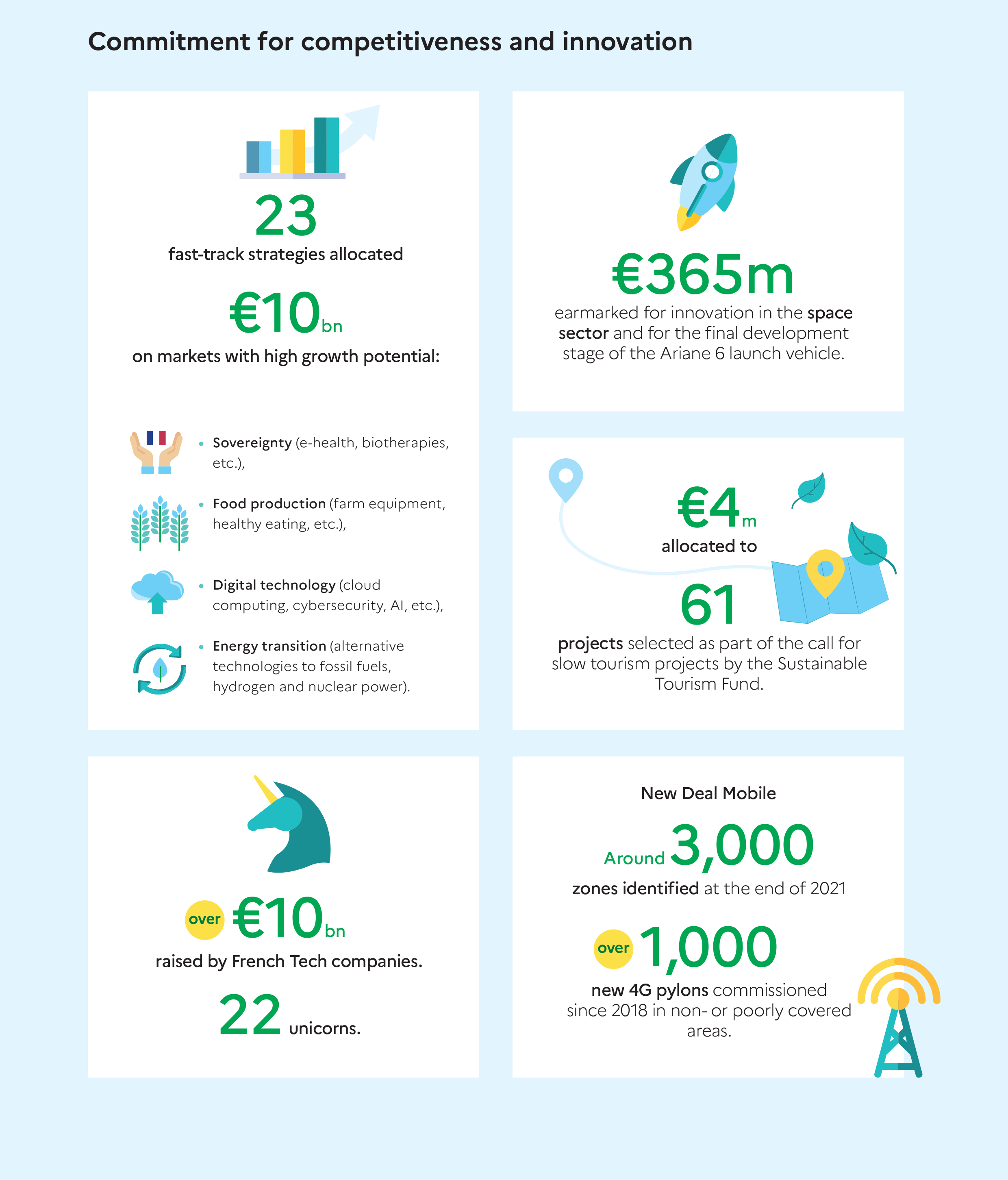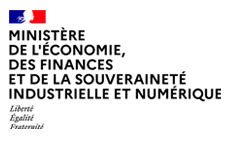The Directorate General for Enterprise (DGE)

Reporting to the Minister for the Economy, Finance and Industrial and Digital Sovereignty, the Directorate General for Enterprise (DGE) designs and implements public policies that contribute to business development.
Its activities are central to the government’s efforts to transform France’s economy. Its remit includes assignments that are sector-based (industrial policy, digital regulation and infrastructure rollout, policies to support craft industries and trades, commerce, services and tourism) and cross-cutting (regulatory streamlining, innovation policy) as well as those relating to the country’s digital and ecological economic transformation.
Our organisational structure
Against a backdrop of heightened international competition, businesses are facing major challenges.
To assist them, the government has to constantly renew its means of intervention and must be able to marshal new skills rapidly. As part of this, in a bid to boost its operational capacities, in September 2019 the DGE announced a restructuring, introducing an innovative, project-based approach.
L'activité 2022 de la Direction générale des Entreprises
A project-based mode at central level
A project approach was implemented throughout the Directorate.
The new organisation distinguishes between:
- structural assignments (sector and regulatory monitoring, administrative supervision, coordination of the government’s regional Economic Departments, etc.)
- high-impact assignments performed in project mode (managing strategic plans, structuring industrial offerings in conjunction with the various sectors, designing new public policy instruments, organising major national and international events, etc.)
Within the departments, each division is responsible for a portfolio of major projects within its sphere of action. Project teams are led by project managers, a new role introduced as part of reorganisation efforts. Staff are provided with in-house training and coaching aimed at promoting new work methods that harness the potential of digital tools, and at developing a culture of impact. Deputy positions have been eliminated at all levels and memos are now paperless to speed up decision-making.
The DGE’s transformation signals a fundamental change in its work culture, which is now aimed at making management more responsive, more effective and more operational. These innovations enable the Directorate to offer a stimulating work environment and a high level of responsibility to its employees, who are given the chance to develop their skills.
Our departments
In addition to a Secretariat General providing administrative support, the DGE comprises:
- The Industry Department
- The Digital Economy Department
- The Tourism, Commerce, Craft Industries and Trades, and Services Department
- The Competitiveness, Innovation and Business Development Department
- The Economic Strategic Intelligence and Security Department
A network closely aligned with the needs of companies
To implement government policy as close as possible to the local level, the DGE draws on a network of decentralised departments within the Regional Directorates for the Economy, Employment, Labour and Solidarity (DREETSs).
Reporting to the Prefect of the region and the DREETSs, and working closely with the DGE’s departments, the government’s Regional Economic Departments (SEERs) carry out assignments relating to economic development, which are broken down into three main actions:
- Support for the region’s strategic sectors
- Coordination of regional innovation policy and the digital transformation of businesses
- Preventing difficulties and restructuring industrial companies
The SEERs also work to ensure the economic security of businesses that contribute to France’s sovereignty as part of a regional approach coordinated by a delegate for strategic information and economic security (DISSE).
Staff in the DREETSs’ Consumer Units who are tasked with legal metrology policies provide supervision for the inspection of regulated measuring instruments, in the interests of consumer protection and fair trade practices.
To learn more: https://dreets.gouv.fr
The DGE’s commitment to gender diversity and equality in the workplace
Gender diversity and equality in the workplace are important issues for the DGE. On 9 March 2020, the DGE signed the Ministry’s 2020–2022 plan for gender equality in the workplace. Wanting to go further, it has also committed to a number of bold supplementary measures, the majority of which concern all employees and are designed to promote gender diversity and equality throughout the Directorate. The plan includes tangible measures such as hiring replacements for parental leave and setting Directorate-wide objectives for gender balance in appointments to ensure equal access to management positions.
The DGE’s action plan (in French only)
Une démarche écoresponsable
En complément du plan « Bercy vert » du ministère de l'Économie, des Finances et de la Souveraineté industrielle et numérique, la DGE mène une démarche écoresponsable pour réduire son empreinte carbone sur l’ensemble des postes d’émission du quotidien.
Elle s'organise autour de six axes, accompagnés de mesures concrètes :
- Réduire l'empreinte carbone des déplacements de la direction
- Encourager le recours à une alimentation plus durable
- Encourager la réduction de la consommation d'énergie
- Réduire et encourager le tri et le recyclage des déchets
- Développer le numérique responsable
- Familiariser les agents aux enjeux et outils de la transition écologique
Consulter la feuille de route écoresponsable 2023-2024 de la Direction générale des Entreprises
How to find us
The DGE’s central departments are divided amongst four sites:
- Grand Bercy:
- 139, rue de Bercy, Paris 13
- 61, Boulevard Vincent Auriol, Paris 13
- 6, Rue Louise Weiss, Paris 13
- Ivry: 67 Rue Barbès, Ivry sur Seine (département 94)
Key figures

Regaining industrial stature and transforming the economy
SOLIDARITY FUND AND RELATED GRANTS
Over €38bn in subsidies paid to two million businesses since March 2020 as part of the Solidarity Fund and related grants.
FRANCE RELANCE RECOVERY PLAN
€100bn in government support under the France Relance recovery plan.
FRANCE 2030 INVESTMENT PLAN
With the France 2030 investment plan, appropriations of €34bn, €17bn of which are earmarked for emerging stakeholders and 50% for greenhouse gas emission reduction goals.
Regaining industrial stature and economic transformation represents:
- Over 10,000 beneficiaries of industrial measures
- Over €15bn in investments by industry
- Over 250,000 jobs created or saved
- €10bn per year cut in taxes on production for 600,000 businesses
- €240m for the High-Speed Broadband Plan
INDUSTRY OF THE FUTURE SCHEME
€878m in subsidies to support over 8,000 digitalisation and automation projects relating to €3bn in industrial investments.
TERRITOIRES D’INDUSTRIE INITIATIVE
€573m to support 1,400 industrial projects relating to €3bn in industrial investments.
REDUCTION OF INDUSTRIAL GREENHOUSE GAS EMISSIONS
2.8 million tonnes of CO2 equivalent saved per year with the shift to a low-carbon industry: 141 projects receiving support of €758m for a total investment of €2bn.
HEALTHCARE
€830m in investments and €519m in support to back 42 industrial projects to combat the COVID-19 pandemic.
RELOCATION AND SOVEREIGNTY
- €2.7bn in investments
- €729m in State aid
- 5 strategic sectors: healthcare, agri-food, electronics, critical industrial inputs, 5G
- 407 projects supported with around 45,000 jobs created or saved
FRANCE NUM
- €100m invested by the DGE in France Num schemes between 2020 and 2021
- 112,000 €500 France Num cheques, 20,000 digital audits and 70,000 VSEs and SMEs given tailored digital training

Commitment for competitiveness and innovation
23 fast-track strategies allocated €10bn on markets with high growth potential:
• Sovereignty (e-health, biotherapies, etc.)
• Food production (farm equipment, healthy eating, etc.)
• Digital technology (cloud computing, cybersecurity, AI, etc.)
• Energy transition (alternative technologies to fossil fuels, hydrogen and nuclear power)
French Tech
Over €10bn raised by French Tech companies
22 unicorns
Innovation
€365m earmarked for innovation in the space sector and for the final development stage of the Ariane 6 launch vehicle
Slow tourism
€4m allocated to 61 projects selected as part of the call for slow tourism projects by the Sustainable Tourism Fund
New Deal Mobile
- Around 3,000 zones identified at the end of 2021
- Over 1,000 new 4G pylons commissioned since 2018 in non- or poorly covered areas





